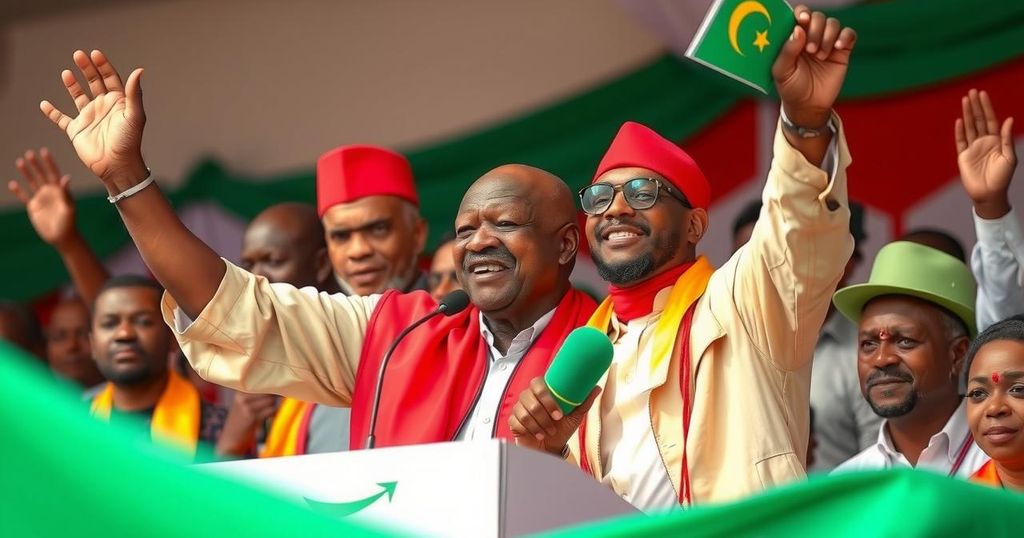World news
2024 ELECTIONS, AFRICA, AHMED BARTCHIRET, ASIA, BOKO HARAM, BURKINA FASO, CHAD, CHINA, COMMISSION, DEBY, ELECTIONS, EUROPE, FRANCE, GOVERNANCE, GOVERNMENT, MAHA, MAHAMAT DEBY, MAHAMAT IDRISS DEBY, MALI, NATIONAL ASSEMBLY, PARLIAMENTARY SEATS, PATRIOTIC SALVATION MOVEMENT, VOTER TURNOUT
David O'Sullivan
0 Comments
Chad’s Ruling Party Claims Majority Amid Electoral Controversy
Chad’s ruling Patriotic Salvation Movement secured 124 out of 188 parliamentary seats in an election marred by opposition boycotts and a participation rate of 51.56%. Critics labeled the electoral process a “charade,” reflecting ongoing disputes over democratic legitimacy in the nation, which is grappling with security challenges and a complicated political transition following military rule.
In the recent parliamentary elections held in Chad, President Mahamat Idriss Deby’s ruling party, the Patriotic Salvation Movement, attained a significant victory by securing 124 out of 188 seats in the National Assembly. This election, which saw a voter participation rate of 51.56%, was largely boycotted by over ten opposition parties, casting doubts on its legitimacy. Opposition leaders criticized the election, labeling it a “charade” and expressing concerns about its credibility, echoing sentiments from previous elections perceived as flawed. The election marks Chad’s first parliamentary vote in over a decade, following Deby’s ascension to power as a military leader in 2021, after the death of his father, long-serving President Idriss Deby Itno. While the ruling party claims the election will facilitate a transition towards decentralization and democracy, the opposition remains skeptical amidst ongoing security challenges in the region.
Chad is experiencing a complex political landscape following a protracted period of military rule. Following the death of Idriss Deby Itno, Mahamat Deby assumed leadership in 2021 and has made various promises to shift towards democratic governance. The parliamentary elections held on December 29 were presented as a crucial step in this transition, although they were marred by opposition boycotts and allegations of electoral fraud. The atmosphere remains tense due to security threats like Boko Haram attacks and geopolitical shifts, including a reduction in military cooperation with France, similar to developments in neighboring countries such as Mali and Niger.
The outcome of Chad’s parliamentary elections highlights significant political tensions in the country. While President Deby’s party claims a decisive mandate, the widespread boycott by opposition factions raises serious concerns about the electoral process’s transparency. The political future of Chad remains precarious, complicated by security issues and ongoing dissatisfaction among the populace regarding governance and democratic representation.
Original Source: www.aljazeera.com




Post Comment